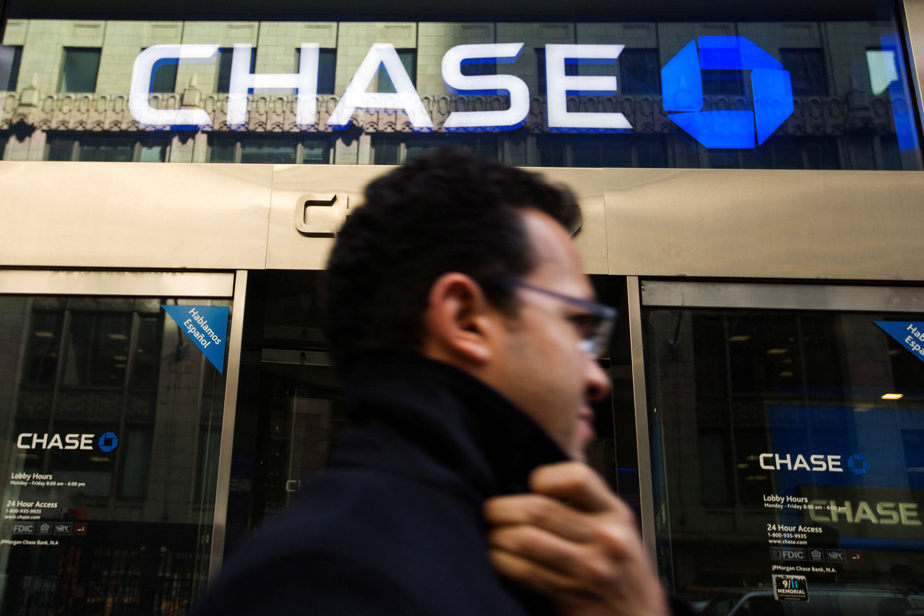(New York) The major American banks published mixed results on Friday, weighed down in particular by exceptional charges, but gave encouraging news from the American consumer.
Opening the US earnings season, JPMorgan Chase, Bank of America, Wells Fargo and Citigroup all reported better-than-expected fourth-quarter 2023 net profits.
But all of them also disappointed in terms of turnover, with Bank of America (BofA) and Citigroup even seeing their revenues fall over one year.
BofA declined in retail banking, business services and asset management, while Citi suffered in markets banking.
The accounts of large general establishments (the investment banks Morgan Stanley and Goldman Sachs will publish on Tuesday) have all been affected by the after-effects of last year’s banking crisis.
All of them had to contribute in the fourth quarter to the reconstitution of the deposit guarantee fund.
The Deposit Guarantee Agency, the FDIC, had to absorb some US$16.3 billion in losses following the failure of several American establishments.
At the beginning of March, Silicon Valley Bank (SVB) and Silvergate Bank were caught in a panic and massive withdrawals.
The first was placed under the control of the FDIC and the second closed.
In the process, Signature Bank and First Republic were overtaken by the contagion and urgently sold to New York Community Bank and JPMorgan Chase respectively.
In an attempt to stabilize the system, the FDIC committed to guaranteeing all customer deposits of SVB and Signature Bank, while the ceiling is usually US$250,000 per person per establishment.
The four banks that reported Friday paid $8.6 billion, in total, to the deposit guarantee fund.
Apart from this hefty bill, these big brands have rather benefited from the banking crisis, which prompted a number of savers and companies to leave regional banks to take refuge with the big names, considered more solid.
During the quarter, they benefited from high interest rates, which the US Federal Reserve (Fed) raised to their highest level since early 2001.
JPMorgan Chase saw its net interest income (interest received deducted from interest paid) increase by 19%.
Large American credit institutions have nevertheless said they expect a reduction in interest margins, due to possible rate cuts by the Fed this year.
Furthermore, as the American economy shows signs of slowing, American banks have increased their provisions for doubtful loans, but in measured proportions.
For the financial director of JPMorgan Chase, Jeremy Barnum, this is a normalization after the atypical sequence which followed the coronavirus pandemic, marked by an improvement in the financial health of households.
“We don’t see a decline,” the official said in a conference call. “The consumer is doing well. »
“Spending is sustained,” he continued, specifying that consumption was even strongest for low-income households.
“We are closely monitoring credit developments and although we see a slight deterioration, it remains in line with our expectations,” commented Wells Fargo CEO Charlie Scharf.
The major American banks have nevertheless noted tensions in commercial real estate, for which a crisis has been predicted for months.
The phenomenon is mainly linked to the emergence of teleworking, which has reduced office attendance.
Among the four brands to have published on Friday, Citigroup remains the least well positioned.
Engaged in a major restructuring, the bank saw its turnover decline by 3% and had to pass a series of charges and provisions which weighed down its result by US 4.6 billion.
Citi ended with a loss of US$1.8 billion after a “very disappointing” quarter, according to CEO Jane Fraser.
The group has also announced the elimination of 20,000 positions in the medium term.
